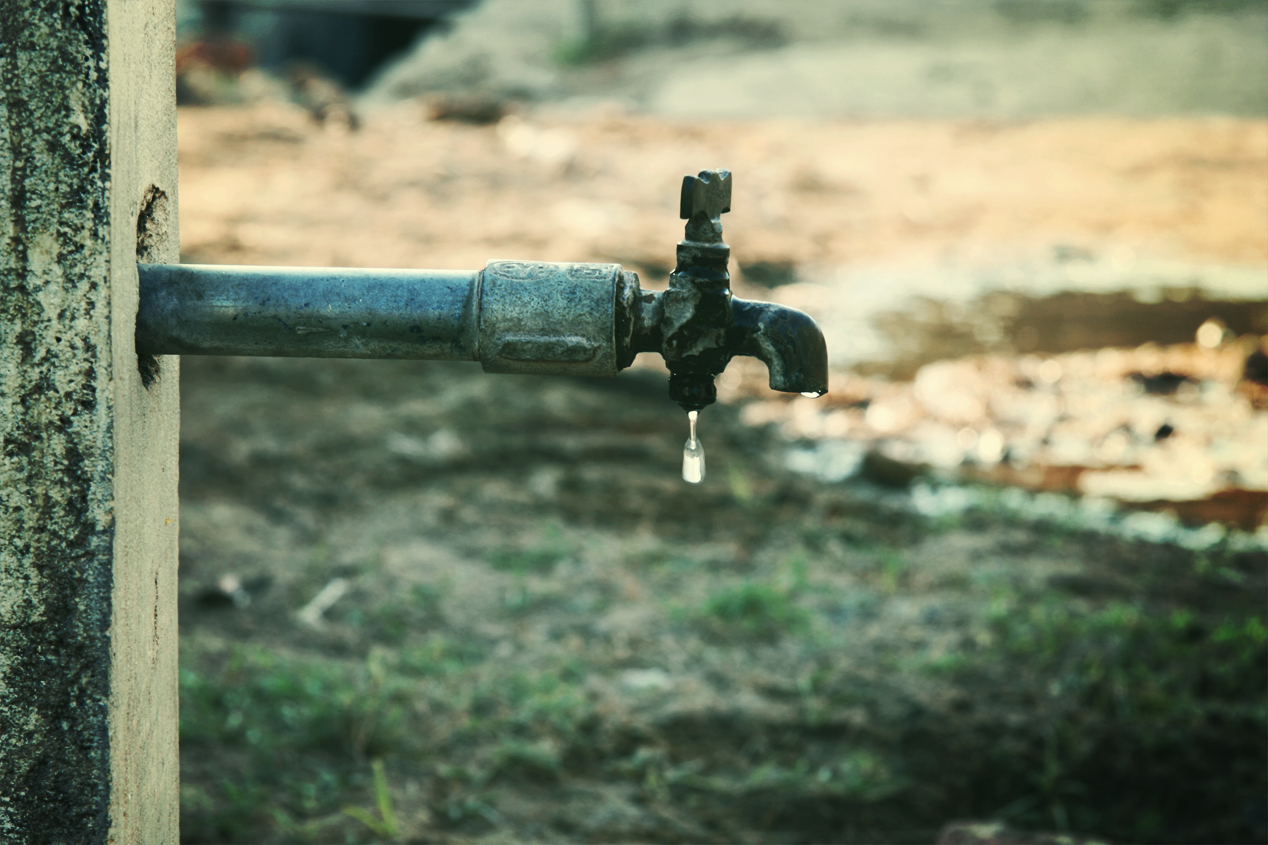We all need one thing to get our brains working early in the morning. For me, it’s a long, scalding hot shower. But as a native of California, which is experiencing one of the most severe droughts in the state’s history, my long morning shower is a thing of the past. Each time I visit home, my mother gives me a well-needed talking to about how we all share this incredibly valuable resource, and so I’ve grown particularly sensitive to the scarcity of water.
Our water system, pipes, and usually free-to-the-public filtration process is often taken for granted.
For millions of people living outside of the U.S. and around the world, access to clean water is non-existent. A glass of uncontaminated water is merely a dream, and the effects of this reality have caused major health issues in children and adults.
To Jill Boezwinkle, senior project manager at Development Innovation Ventures, at the U.S. Agency for International Development (USAID), this reality was unacceptable.
Boezwinkle is overseeing a $5.5 million grant to supply nearly 5 million people in Kenya and Uganda with clean drinking water. Developed by the nonprofit Innovations for Poverty Action, the Dispensers for Safe Water program supplies chlorine dispenses to be installed next to communal water sources. Community members must simply dispense a set amount of the chorine into their normal water sources, which disinfects the water and prevent recontamination for up to 72 hours.
Boezwinkle worked tirelessly to get the Dispensers for Safe Water to millions of people. In a randomized trail in western Kenya, it was found that 50 to 61 percent of the chosen households opted to use the new chlorine treatment in their water, and the project has already reached 1 million people.
For her hard work and innovation, Boezwinkle has been nominated for a Service to America Medal (Sammies), the Oscars for government workers.
Boezwinkle spoke with Chris Dorobek on the DorobekINSIDER program about the clean water issue, the innovative new way of tackling this major problem, and DIV’s approach to these world problems
“This program is actually a really great example of the way that Development Innovation Ventures in general approaches problems. We’re really interested in so many different problems in the developing world, and it’s hard to know where even to start. We are really interested in investing in solutions that have been tested and that we know that work,” said Boezwinkle.
According to Boezwinkle, Innovations for Poverty Action did a lot of testing on their own before approaching DIV with Dispensers for Safe Water. She said one of the biggest challenges was finding a way to get this program out to the remote areas where it is most needed.
“We tested various distribution methods, ways of packaging the chlorine, and working with the communities so that they would know that this is an option for cleaning their water. When [Innovations for Poverty] came to us, they had this whole package that had been really tested and vetted, and they needed our support to take it further and bring it to additional countries,” Boezwinkle explained.
Boezwinkle stated how USAID later brought the clean water initiative to Uganda and Malawi, using the lessons learned from the Kenya trail as a base for how improve the program in future cases.
There is not one single clean water solution. Boezwinkle stressed how this is one small step toward the overall issue and that the chlorine dispensaries don’t work with water sources that are severely contaminated. Solutions depend on the varying contexts, said Boezwinkle, and DIV hopes to help uncover these.
Unlike other government action, measuring the success of the program can’t be based on a balance statement of profits and losses. “In the case of this program,” Boezwinkle explained, “they’re measuring several different things, but the primary one is diarrheal disease. And at a more practical level, they’re also tracking just how many people actually have chlorine in their water when they go outside of their households, what’s the uptake on the use of their dispensaries, and if their solution itself is actually working.”
In its first three years, USAID projects that the program will prevent 3.3 million cases of diarrhea and save 3,200 children’s lives.
So, why should we care in the U.S.?
“My background is in public health, and I believe that health in particular is such a global issue, as we’ve seen with Ebola and other things. When we live in such a global world, it’s really difficult to ignore things that are happening in other countries. And I also think there’s something to be said about being able to share some of the innovations that we have come up with in the United States. It’s a great way to bring our innovative entrepreneurial spirit to some of these problems,” said Boezwinkle.
You can find all our Sammies interviews here.
Feature Image Attribution: Vinoth Chandar
Headshot Attribution: Partnership for Public Service






Leave a Reply
You must be logged in to post a comment.